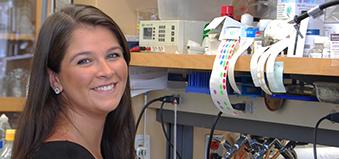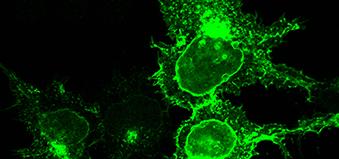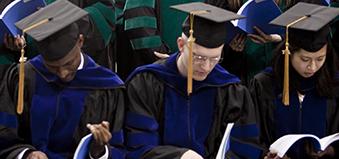Genetics, Molecular and Cellular Biology
| Program Start | Length | Funding | Stipend |
|---|---|---|---|
SEPTEMBER | 5.5-6 YEARSon average | FULL TUITION | $45,0002025-2026 |
The Genetics, Molecular and Cellular Biology Program (GMCB) offers strong interdisciplinary training across a spectrum of fundamental biomedical areas, including classical and molecular genetics; structural & chemical Biology; and cell & developmental biology.
The GMCB program participates fully in the MS in Biomedical Research.
Our faculty of over 100 offer research opportunities applying these fundamentals to a wide range of disease areas, such as cancer, cardiovascular biology, musculoskeletal disorders, and eye disease.

Opportunities to train at different sites
GMCB offers students a unique mix of training sites. Many of our faculty are based on the Health Sciences Campus of Tufts University in downtown Boston. Additional faculty are located on the Medford Campus in the College of Arts & Sciences and the School of Engineering, as well as at the Cummings School of Veterinary Medicine in Grafton, MA. Admitted GMCB students also have the opportunity to train at the MaineHealth Research Institute in Scarborough, ME.
For prospective students interested in conducting research in Maine, a distinct opportunity is also available through the Mammalian Genetics @ JAX program (a separate program housed within GMCB). Students admitted to GENE@JAX conduct their research exclusively at The Jackson Laboratory in Bar Harbor, ME.
GMCB Admissions
Students seeking admission to the Genetics, Molecular & Cellular Biology program apply to the Graduate School of Biomedical Sciences.
Most successful applicants have had significant research experience and completed courses in biology and related sciences in college.
Students interested in the Mammalian Genetics at JAX track must select this track when they apply.


GMCB Curriculum
Our curriculum is grounded in the fundamentals of genetics and molecular biology and cell biology. Students acquire a firm grounding in fundamentals while obtaining the knowledge to attack contemporary biomedical problems in these areas.
Students conduct three laboratory rotations and begin their thesis research by the end of May of their first year.
Students benefit from an interactive faculty, experienced in mentoring and are also advised by a thesis committee expert in their area of research.
Seminar-based Courses
GMCB students enjoy a robust seminar program with speakers from laboratories across the world.
Our students also receive training and mentoring in presenting their research and have opportunities to present their data in beginning in their first year.
Journal clubs supplement the learning experience and help students become familiar with reading the research literature.

Meet Our Students
Our students come from across the US and the world and are pursuing a wide range of thesis projects.
Student Publications
Publication of research is a key part of training and our students publish their work in excellent journals.
Program Outcomes
Over 93% of our students complete an advanced degree and go on to pursue a wide range of careers.


